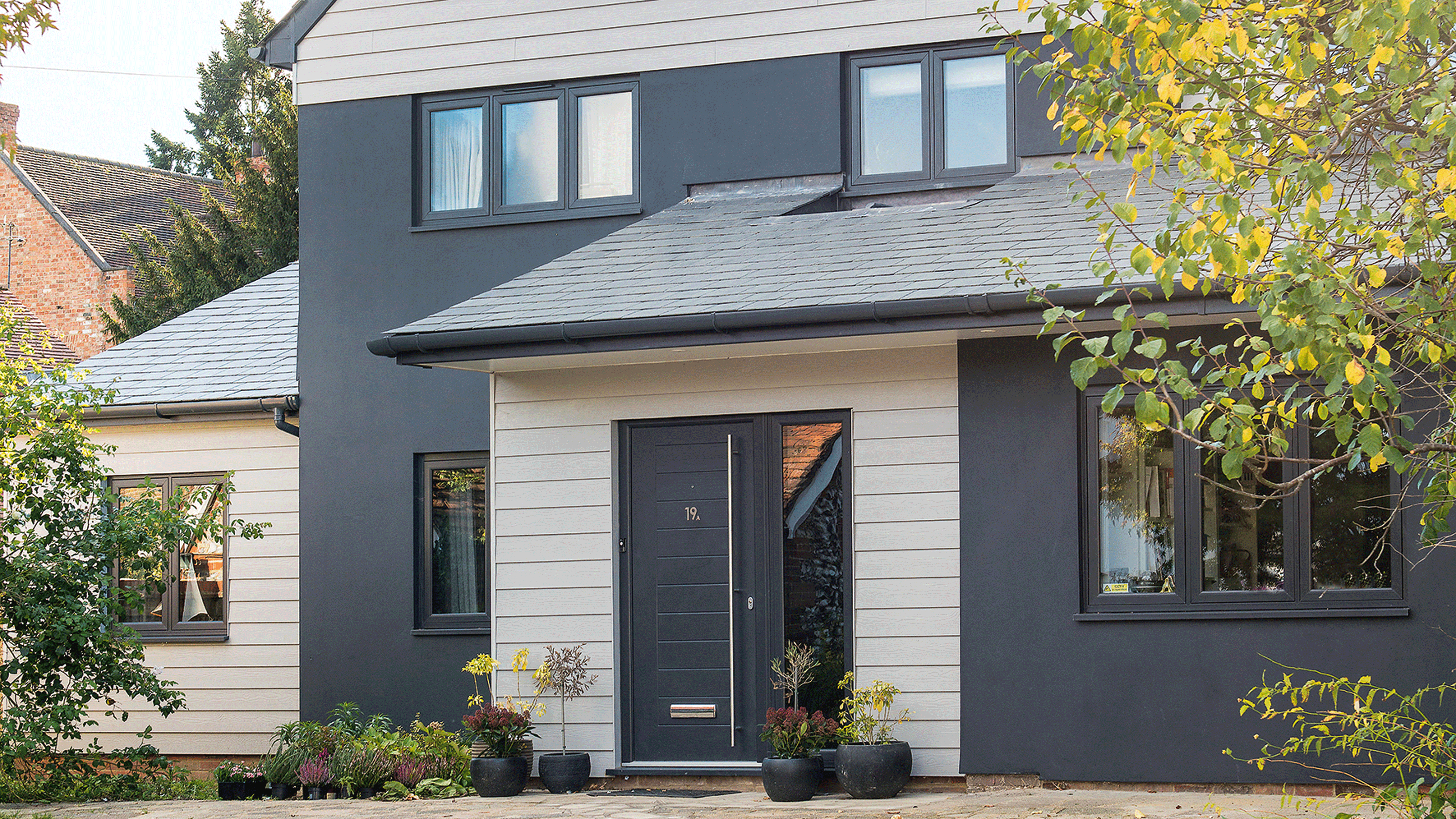How does inflation affect mortgage rates? Our expert explains how your monthly payments could be affected
We all know that inflation is still high right now, but how does it affect mortgage rates?

We're all feeling the pinch of rising prices. You only have to look at the price of your food shop or your energy bill to see the impact of inflation on your household spending – but how does inflation affect mortgage rates?
Inflation fell to 7.9% in the year to June, down from 8.7% in the year to May, and significantly down from October 2022's 40-year high of 11.1%. It is expected to fall further in 2023, according to the Bank of England.
Alice Haine, Personal Finance Analyst at Bestinvest, the DIY investment platform and coaching service, comments: 'For households, retreating inflation is good news as it means their money can stretch further – though consumers should remember that a typical basket of goods is still almost 8% more expensive than it was a year ago. '
We explain how rising inflation impacts mortgages, what worried mortgage holders can do now - and whether inflation could cause house prices to fall.
How does inflation affect mortgage rates?
When inflation remains high like it has so far this year, it can have a significant impact on mortgage rates. This is because the Bank of England looks at factors like inflation when deciding whether to raise or cut the base rate to curb high inflation. A rise in interest rates is what then affects the rate you pay on your mortgage (or any money you borrow). Some homeowners could see an increase in their monthly repayments, while first-time buyers will see mortgage rates get higher and affordability tests harder to pass.
The UK inflation target is 2%, so anything above this increases the chances of the Bank of England hiking interest rates to bring inflation back under control. The opposite is true if inflation is very low. In that case, interest rates may be cut to try and get people spending rather than keeping their money in savings.

Faced with soaring inflation, the Bank of England has responded by raising interest rates multiple times this year. Since January, the base rate has increased to it's current level of 5% - the highest level in 15 years.
Sign up to our newsletter for style inspiration, real homes, project and garden advice and shopping know-how
Alice Haine adds: 'With rate rises still on the cards, some households face significant financial pain when their fixed-rate mortgages mature, and they have to absorb alarmingly higher repayments. The cost-of-living crisis is now being overtaken by a cost-of-borrowing crisis, with mortgages taking the lead as the major personal finance concern of the moment.
'Mortgage costs increasingly take up a larger share of consumers’ take-home pay, something that has dire consequences for the economy as people restrict their spending in other areas to ensure they can meet their household bills. '
Is high inflation good news for homeowners?
Unfortunately, high inflation is rarely a good thing for those with mortgages. If interest rates subsequently rise, this pushes up mortgage rates too. But not everyone will see an instant increase in their monthly repayments. How quickly the rise is passed on to you depends on the type of mortgage you have.
If you have a fixed rate mortgage, you won’t see the impact of an interest rate rise until the end of your fixed-term and you remortgage or move on to your lender’s standard variable tariff. This is because your interest rate is locked in for the duration of your fixed term. But when you come to remortgage, it’s likely that you will have to pay a higher rate on your next mortgage if the Bank Rate remains high.
However, those homeowners who are on standard variable rates or have tracker mortgages will usually see an increase to their monthly payments as their rate is tied to the base rate and can go up or down each month. If you're worried about your mortgage payments skyrocketing, our finance expert offers some potential solutions.

What should I do about my mortgage if I’m worried about inflation?
It can be a worrying time for homeowners when inflation rises.
Those on a fixed rate should double check when their current deal ends and add a reminder to your calendar for when you should start looking for a new deal. Some banks and building societies will let you lock into a new rate between three to six months before your old one expires.
Head of personal finance at AJ Bell, Laura Suter says: 'Those remortgaging who feel like they can’t afford a new, higher monthly amount could choose to extend the term of their mortgage. This will cost more over the long-term but could provide them with breathing space for now.'
Another option is to switch to an interest-only mortgage whereby you only repay the interest each month and none of the debt. This will reduce your monthly payment but your mortgage balance will not go down. 'Interest only isn’t a great long-term solution for lots of homeowners, but it could provide the short-term relief that some borrowers need,' adds Laura.
If you’re on an SVR - which is the most expensive type of mortgage rate - you could save hundreds, maybe thousands, of pounds a year by moving to a fixed rate. Speak to a mortgage broker if you need help searching for a new product, or if you’re unsure about your options.
If you are struggling to afford your monthly payments, read our guide to what to do if you can’t pay your mortgage to find out what help is available.

Should I pay down my mortgage during high inflation?
It’s always a good idea to overpay your mortgage - if you can afford it. During the cost of living crisis, this may not be possible as just paying your usual mortgage bill, plus other essential expenses, can feel like a stretch.
For other homeowners, you may feel you can comfortably overpay your mortgage (perhaps you have a large amount of savings, and a decent salary with good job security).
Sarah Coles, personal finance expert from Hargreaves Lansdown, says: 'At a time of high inflation, if you pay down your mortgage then the higher rate of interest you are being charged will be applied to smaller amount of mortgage debt, which makes it more affordable.
'It may not be your first priority, but if you’re already on top of more expensive short-term debts and you have enough emergency savings it’s certainly worth considering.'
By overpaying your mortgage you will also pay less interest over the life of your mortgage.
If you are able to pay extra, check if there is a maximum amount you can overpay on your mortgage. If you go over this limit, the lender could charge a hefty fee.
Is inflation good for house prices?
As interest rates rise, the housing market often slows down. Mortgages become more expensive and harder to afford, and so people might be more inclined to rent instead.
However, rents are high too, leaving prospective homeowners struggling to make ends meet.
- Sarah HandleySection Editor – Renovation
- Samantha Partington